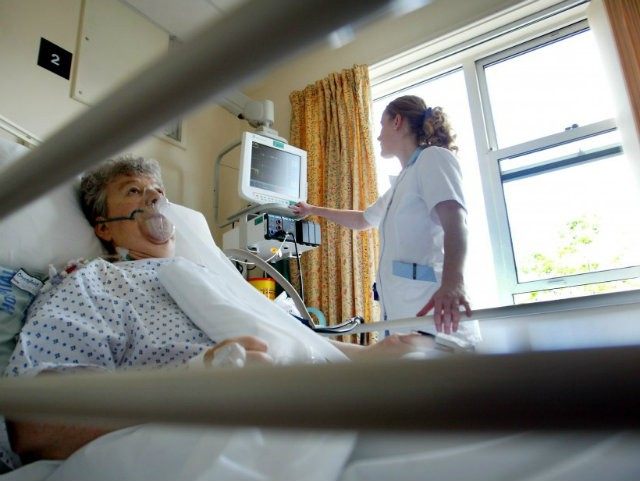Over 9,000 people die each year needlessly thanks to the unwillingness of Britain’s political classes to embrace public-private partnerships in healthcare, a new report has found. Far from being the “envy of the world”, the report’s authors highlight the fact that the NHS lags behind many European models in terms of outcomes, and that Britain is far from being the only country to provide universal access to healthcare.
In a report for the Institute of Economic Affairs entitled What are we afraid of? Universal healthcare in market-orientated health systems, Dr Kristian Niemietz compared the performance of the British National Health Service to the systems offered in European countries, most specifically looking at Germany, the Netherlands and Switzerland.
He found that cancer survival rates were lower in the UK than elsewhere, with British patients suffering from breast, cervical and colorectal cancer less likely to survive than their counterparts in Germany and the Netherlands.
British sufferers of a stroke were also less likely to survive than German, Dutch or Swiss stroke patients, and clinical quality and safety is lower on the NHS than in Germany or Switzerland, with the result that there were more post-operative complications in Britain than in those countries.
But perhaps most damning were the numbers of needless deaths: as many as 9,000 people are thought to have died each year who wouldn’t have done had they been treated in Germany.
One such patient is Margaret Hesketh, who was put on the Liverpool Care Pathway last year after her family were told that she had widespread cancer and only months to live. The Pathway involves the withdrawl of all food and fluids, effectively causing the patient to die from dehydration and starvation. Hospitals have been told to phase out its use after a number of “heartbreaking” cases involving children came to light.
According to the Mail on Sunday, doctors refused requests from Mrs Hesketh’s family that fluid and feeding tubes be put back, claiming it would cause unnecessary suffering. She died six days later. But a post mortem showed that the 70 year old did not have cancer at all. It confirmed that she died of pneumonia and malnourishment.
“The doctors have destroyed us. We have had to sit there and watch her die, not knowing that she didn’t actually have terminal cancer,” said Mrs Hesketh’s daughter, Karen Masters. “I want a criminal investigation. I want somebody to tell me why a 70-year-old died in this way.”
Despite the litany of death and disease, Dr Niemietz points out that Britain is far from the only country to offer universal healthcare, nor does it top the charts in terms of equality of access – two of the most oft repeated arguments in favour of the NHS.
“Britain is not the only country that has achieved universal access to healthcare, but Britain is probably the only country where this is celebrated as if it were a unique achievement,” Dr Niemietz notes. “The NHS’s achievements are frequently judged against implausibly low, unambitious standards, and the NHS is then eulogised for minor achievements.
This is exemplified in often-heard statements like ‘The NHS once saved my life’ or ‘I am grateful to the NHS for…’, where the implicit benchmark seems to be either the state of healthcare as it was prior to 1948 (when the country was much poorer and medical technology much more primitive), or simply the absence of any healthcare.”
But Dr Niemietz points out that both benchmarks are simply false. According to the OECD, Germany, the Netherlands and Switzerland all rank among the most equitable healthcare systems in the world, thanks to practices which include subsidising insurance for low paid households and passing legislation to ensure that insurance companies can’t ‘cherry pick’ by discriminating against applicants on the basis of existing health conditions.
Commenting on the report, Mark Littlewood, Director General at the Institute of Economic Affairs, said: “When it comes to proposing serious solutions to enhance the quality of the NHS, politicians have been blind to the experiences of our European counterparts.
“The success of Social Health Insurance systems in Europe shows that, rather than being at odds with high quality care, combining different sources of funding has led to empowered patients and superior performance.
“The UK has much to learn from alternative models of healthcare and these lessons would dramatically improve the present state of the NHS.”

COMMENTS
Please let us know if you're having issues with commenting.